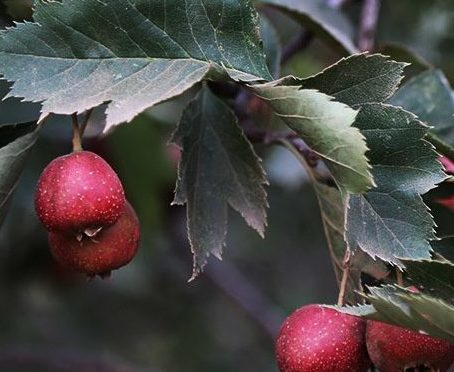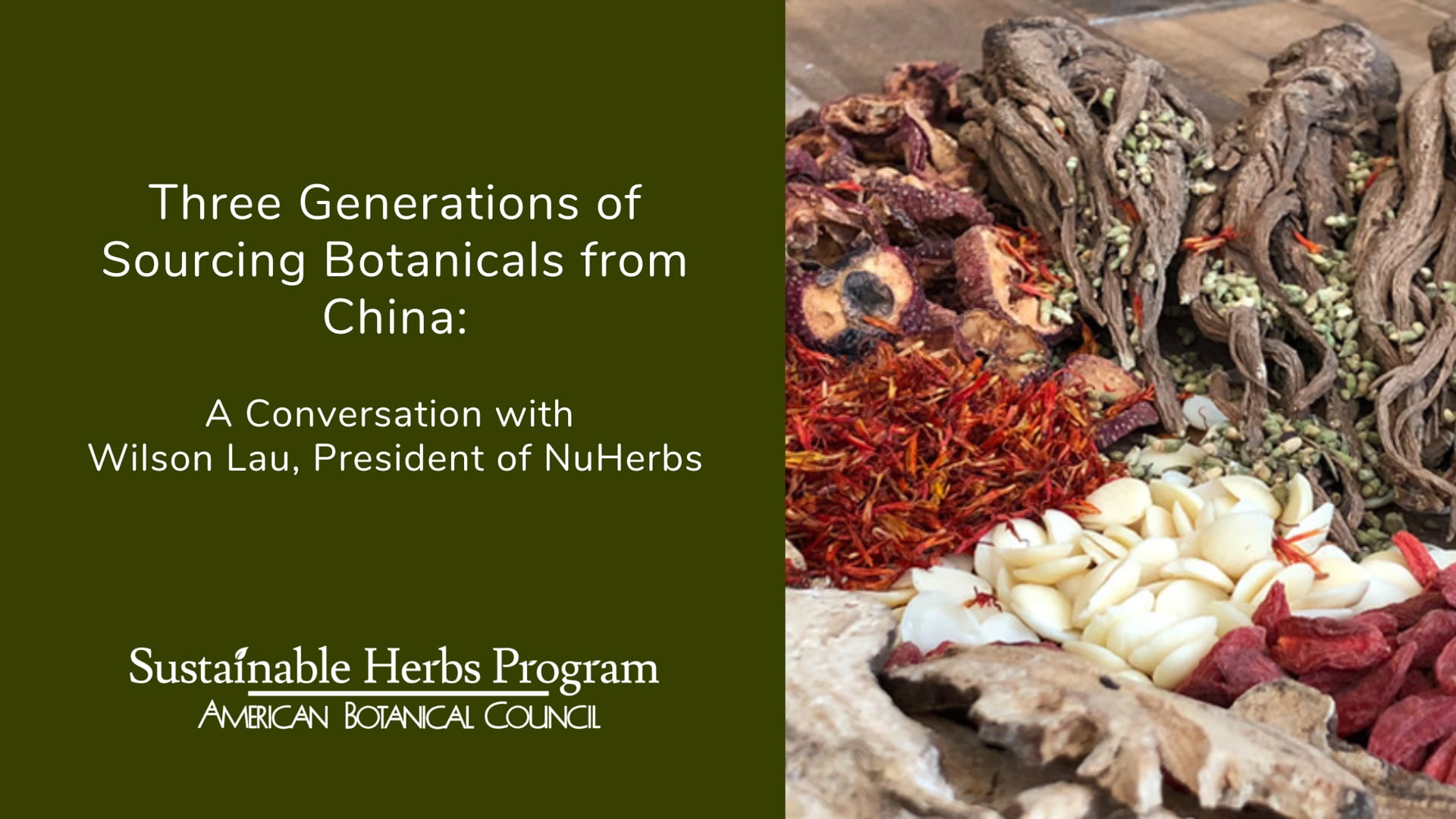Photo: Wildcrafted You Ji Shan Zha (Organic Hawthorn Fruit) from NuHerbs
My conversation with Wilson Lau, President of Nuherbs, a Chinese herb ingredient and TCM practitioner products supplier, covered many different topics. The range and depth is impossible to summarize here and I encourage you to listen to the full recording here. Below the recording are a few highlights from our conversation.
Be Consistent
Wilson is the third generation of his family to lead the company. His grandmother, Doctor Bing Yin Lee, opened a practice in San Francisco’s Chinatown in 1974. She became one of the first licensed acupuncturists in California after completing her PhD in 1984. Wilson’s parents opened a Chinese herbal pharmacy in Oakland’s Chinatown and began sourcing herbs directly from China because they couldn’t find the quality needed for her practice.
At the end of our conversation, Wilson was asked if there was any medicinal plant wisdom he could share that he learned from his grandmother. “Be consistent,” Wilson said without hesitating.
“My grandma lived until she was 100. And consistency is key. With herbalism, health and vitality, be committed to it. Do a little bit every day. She’d get up in the morning, do her calisthenics, drink herbal soups. She was really committed to that lifestyle and to health. -.. You have to embrace life and live it and do it. And just like in the mastery of anything, you have to keep doing it. Over and over and over again.”
Quality
- Quality is so nuanced. It depends in part on what you are looking for in the herbs and the formula, Wilson explained. Some buyers only measure it by looking at particular phytochemicals. Others look at the whole herb. It is impossible to summarize in general terms. I encourage you to listen to the first section of the webinar for Wilson’s nuanced discussion of quality.
- Wilson spoke for awhile about adulteration. In the past, plants were considered adulterated in part because buyers weren’t precise enough in specifying what they were looking for.
- You can’t buy herbs from a spread sheet. If you name a price, you can find that herb. But if you want good quality, you need to know your source. You need to conduct risk assessments to determine whether the environment is clean, whether there are factories near that will lead to heavy metals in soils or in the water runoff, etc.
- I asked about non point contamination. Wilson said that’s a problem everywhere but that because pesticides aren’t sprayed by planes as in the US, in China they can control drift with borders and hedges better.
Trust
- Sourcing good quality herbs depends on trust. This is an international business. Farmers and producers wonder how they can rely on an herb buyer. Will they come through? And so he works hard to demonstrate that he and his company will come through. They will do what they say they will do. The person in charge of Quality Assurance for NuHerbs has worked there for 30 years. He began at the company as a factory manager. He understands the company and has longterm relationships with the producers with whom they work.
- “So it’s very important to have alignment in your partners, your employees and the people that act on your behalf,” Wilson said. “So I think having a dialogue and talking to them and really understanding what they need. Currently, I’ll tell you something that is really interesting about the Chinese market, and I think the market worldwide, right, as interest rates creep up, and as the economy may not be doing as well, a lot more growers are asking for money upfront, because they may not have it. And you know, it’s like, well, that’s part of this trust as well, right? I give you the money. You know, I trust that you’ll deliver to the best of your ability.”
- He continued, “This is what sustainability is right? It is at origin you’re making an ask. “You’re asking farmers or producers to change what they do things. You’re asking them to decrease their yield. You’re asking them to do more work, right? And sure, you’re going to compensate them for that, but at the same time, they have to believe that it’s worthwhile, right? Because you could, you know, you can be like, Hey, I’m gonna pay you extra. But, from their point of view, are you really going to pay them extra? Are you really gonna take this stuff? … So it’s all about trust.”
Feet on the Ground
- Relationships matter. Even more importantly, do the people that you are working with have feet on the ground? Wilson said, “How integrated are they really into that particular origin? And who are they dealing with? Are they dealing with traders? Are they buying at the market? Or are they working with farmers and have ability to control and manipulate things in order to meet our expectations and your expectations? Right? You just can’t just send an email and expect that everything will just magically align.”
- Wilson said that COVID has impacted herbs from China not necessarily in increasing demand. China exports only a small amount of herbs compared to the total volume. Instead, quality systems are suffering. A lot of institutional knowledge was lost as older generations retired at roughly the same time.
- In response to a question about the differences between Chinese herbs grown in the US, Wilson talked about the importance of the microclimate and the importance of Di Dao or geo-authentic herbs. “We have to respect the microclimates, the way these herbs are grown traditionally. Because we don’t know all of the chemistry in an herb that makes it work the way that we expect it.”
Making the World a Better Place
In closing I asked Wilson what he loved most about this work.
“I love the people. I love the people and working with people and helping people make their dreams happen right? Like working with the farmers and helping them get access to doing what they love, like growing quality materials, supporting them in doing that. And with my partners in China it’s having that stable relationship, building the business up together. For my customers, it’s really giving them what they need and want…. And now with the new focus on sustainability, environmentalism, and the need to do something positive on that front, we’ll be doing a lot more work with our partners at origin, and our partners that are selling it via brands or practitioners to really making a dent on that and contribute to that part of the business and the world.”



Comments